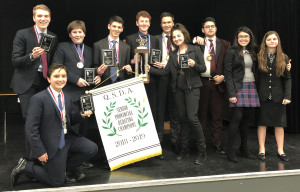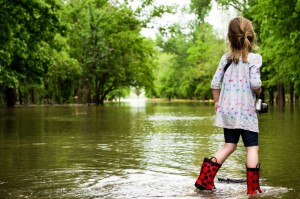 For 110 years we have operated as a school focused on the teaching of and adherence to values. They’re important in defining high standards, in promoting our students’ character development, and the creation of responsible citizens who are essentially good people. At the end of last year, we adopted six core values that we feel we should really stress here at LCC in all that we do. They’re foundations for our entire learning community. Not just students – faculty, staff, parents, alumni also.
For 110 years we have operated as a school focused on the teaching of and adherence to values. They’re important in defining high standards, in promoting our students’ character development, and the creation of responsible citizens who are essentially good people. At the end of last year, we adopted six core values that we feel we should really stress here at LCC in all that we do. They’re foundations for our entire learning community. Not just students – faculty, staff, parents, alumni also.
I believe this is a very positive development, as these values help us to be clear about what matters here. It’s especially important to teach and defend important values that may actually be less evident or visible in society at large, where sometimes social standards, decorum or politesse seem to be in decline. Too often we see evidence of this through incidents of road-rage, people yelling at a referee at a sports match, someone not holding a door or helping an elderly person, or poor online comportment. Those are trends we don’t need to follow and will never tolerate at LCC.
So, here’s how we’re defining LCC’s Core Values:
Respect: In our actions and words, we demonstrate respect for ourselves, for others and the world in which we live. We are committed to responsible citizenship and are accountable for our behaviours.
Resilience: We are courageous in our conduct and demonstrate flexibility when faced with challenge and the unexpected. We grow from our experiences, are focused, and emerge stronger than before.
Integrity: We act in a way that is honourable, principled, moral and fair. We stand up for what we believe is right and are dedicated to the highest ethical standards.
Global Engagement: We own our individual and shared roles in shaping a better world. As a diverse and inclusive community that transcends borders, we promote appreciation of different perspectives, collaboration, and instill empathy, social responsibility and cultural understanding.
Kindness: We open our minds and our hearts to others with compassion & understanding. In the spirit of Non Nobis Solum, we are community-oriented and care about the people around us.
Well-Being: We foster a culture of wellness that supports the physical, mental, social and emotional aspects of personal and collective growth.
Reflect upon these LCC core values and discuss them. No one expects anyone to be a saint, but we all should do our best to live them and exemplify them. Why? Because living our core values matters! – Christopher Shannon (Pre-U ’76), Headmaster

 As we begin a new school year, I think that most students are excited about an array of opportunities, but a lot are also naturally feeling somewhat vulnerable. A major contradiction of our times is the unintended message of the nuts-and-bolts priorities of the “I generation”. I hear a lot about “I this” and “I that”. Let’s face it, across North America there’s an obsession with the individual and with individual public displays of personal competence and strength. Although there’s nothing wrong with strength, courage and developing into a solid individual, none of our students are able to do it alone, I assure you.
As we begin a new school year, I think that most students are excited about an array of opportunities, but a lot are also naturally feeling somewhat vulnerable. A major contradiction of our times is the unintended message of the nuts-and-bolts priorities of the “I generation”. I hear a lot about “I this” and “I that”. Let’s face it, across North America there’s an obsession with the individual and with individual public displays of personal competence and strength. Although there’s nothing wrong with strength, courage and developing into a solid individual, none of our students are able to do it alone, I assure you. I have been involved with debating since I arrived at LCC in grade 7 and have come to love it. It has led me to exciting opportunities on a provincial, national, and even international level after making it onto Team Canada last year.
I have been involved with debating since I arrived at LCC in grade 7 and have come to love it. It has led me to exciting opportunities on a provincial, national, and even international level after making it onto Team Canada last year. In other exciting news, a couple of months ago, Ella and David were invited to try out for Team Canada after their performance in the provincial championship, which is pretty incredible. Ella made the team, which means that LCC now has two members on Canada’s debate team (including me)!
In other exciting news, a couple of months ago, Ella and David were invited to try out for Team Canada after their performance in the provincial championship, which is pretty incredible. Ella made the team, which means that LCC now has two members on Canada’s debate team (including me)! Our student Green Team volunteers and a handful of other students are LCC’s “eco-warriors” who are active in considering new ways to educate, support, and advocate for our environment. Despite their efforts and a strong commitment from school administration, I am still concerned about awareness and ownership of environmental issues across our broader school community.
Our student Green Team volunteers and a handful of other students are LCC’s “eco-warriors” who are active in considering new ways to educate, support, and advocate for our environment. Despite their efforts and a strong commitment from school administration, I am still concerned about awareness and ownership of environmental issues across our broader school community. My exchange has been amazing so far and it just keeps getting better and better. As soon as I reunited with my exchange partner at the airport, I instantly felt a part of the family. Since I arrived on a Saturday, Renata (my exchange partner), planned for us to go out on Sunday to get to know the city a bit and meet some of her friends. They were so welcoming and tried their best to include me in every conversation even though they weren’t very comfortable speaking English.
My exchange has been amazing so far and it just keeps getting better and better. As soon as I reunited with my exchange partner at the airport, I instantly felt a part of the family. Since I arrived on a Saturday, Renata (my exchange partner), planned for us to go out on Sunday to get to know the city a bit and meet some of her friends. They were so welcoming and tried their best to include me in every conversation even though they weren’t very comfortable speaking English.
